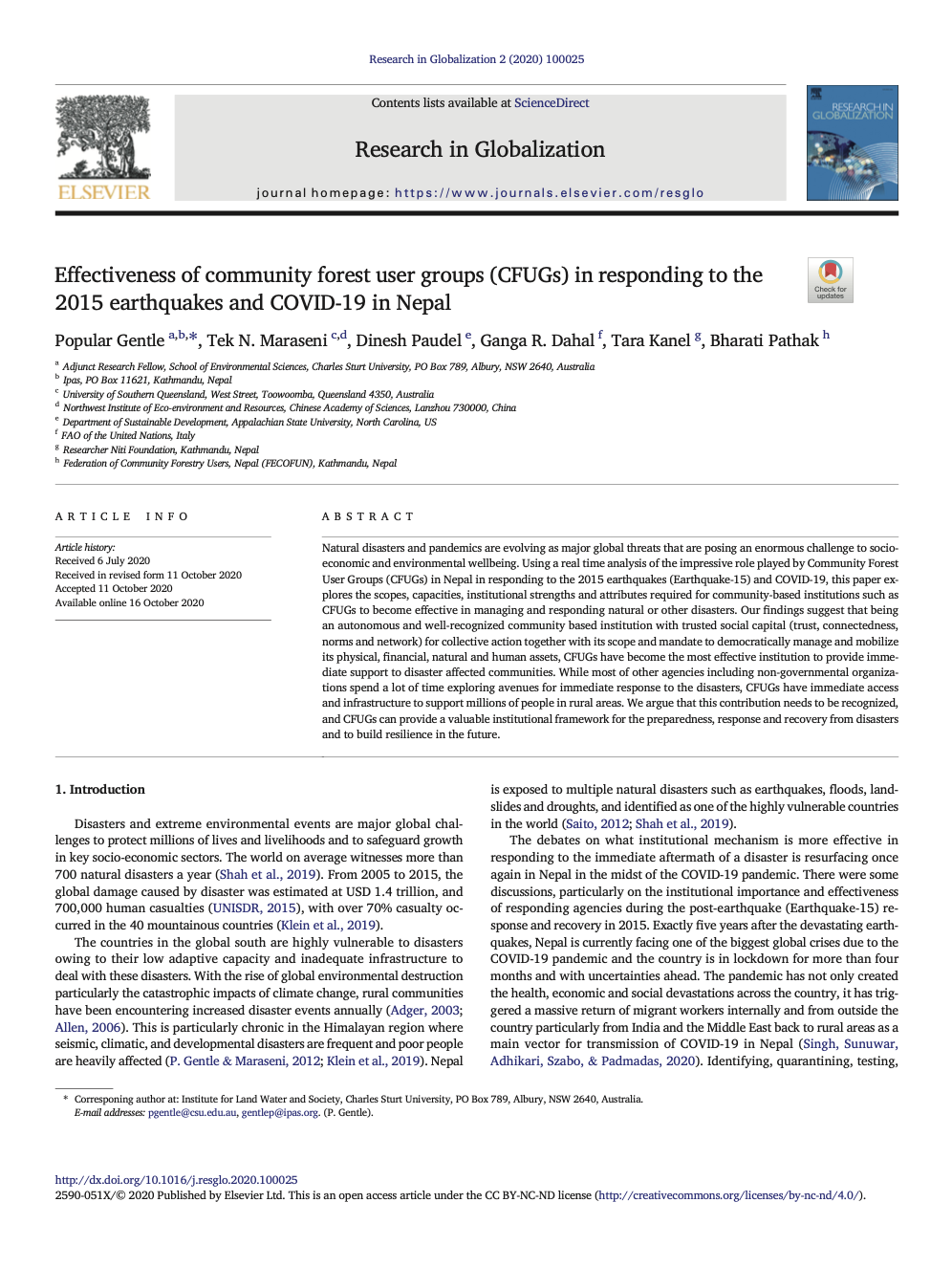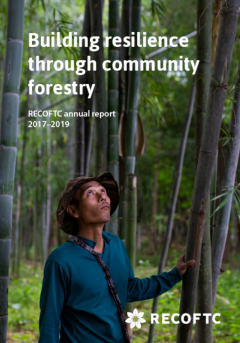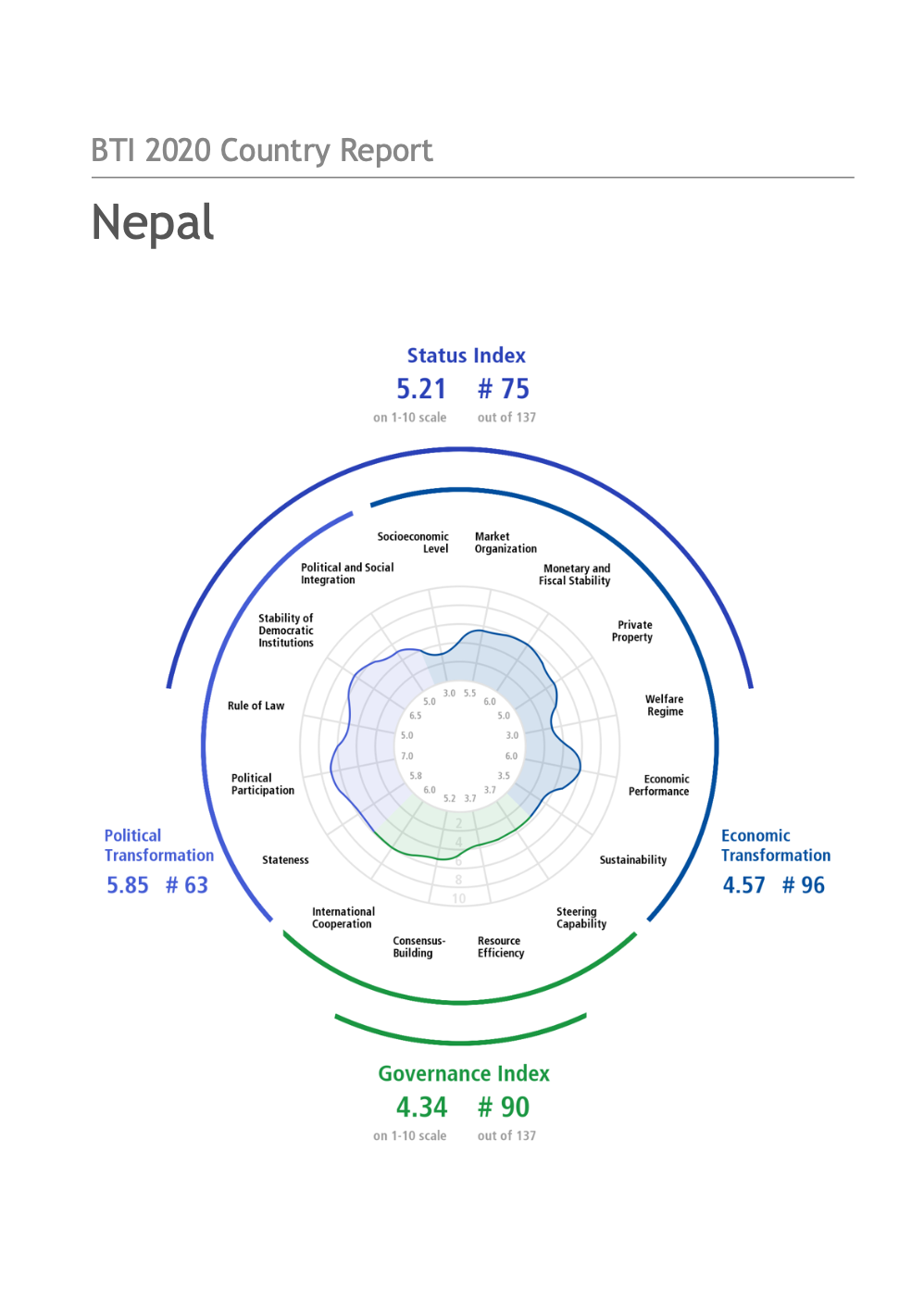After the political change in Nepal of 1951, leapfrog land policy improvements have been recorded, however, the land reform initiatives have been short of full success. Despite a land administration system based on cadaster and land registries in place, 25% of the arable land with an estimated…
After the political change in Nepal of 1951, leapfrog land policy improvements have been recorded, however, the land reform initiatives have been short of full success. Despite a land administration system based on cadaster and land registries in place, 25% of the arable land with an estimated…
Deforestation and forest degradation mostly caused by human interventions affect the capacity of the forest ecosystem to provide ecosystem services and livelihood benefits. Forest and landscape restoration (FLR) is an emerging concept that focuses on the improvement of the ecosystem as well as…
Enhancing accountability has become an important objective of the governance reforms over the past two decades. Yet, only a few studies have explored the use of social accountability tools in the water sector in particular. This report aims to fill this gap, based on a case study of a donor-…
This article investigates water security in Nepal from the perspective of the water-energy-agriculture (food) nexus, focusing on pathways to water security that originate in actions and policies related to other sectors. It identifies promoting development of Nepal’s hydropower potential to…
Natural disasters and pandemics are evolving as major global threats that are posing an enormous challenge to socio- economic and environmental wellbeing. Using a real time analysis of the impressive role played by Community Forest User Groups (CFUGs) in Nepal in responding to the 2015…
Municipal planning in Nepal has evolved from an approach managed by only land-use planners and government perspectives to a more inclusive process involving a broader range of participants. This is building a better understanding of local situations and their most pressing issues. To help…
Adoptions of improved technologies and production practices are important drivers of agricultural development in low-income countries like Nepal. Adopting a broad class of such technologies and practices is often critical for meeting the multifaceted goals of efficiency, profitability,…
Read RECOFTC’s digital annual report, “<a href="https://www.recoftc.org/special-report/recoftc-annual-report-2017-2019?mc_cid=7fd44d……
The last two years have been a period of rebound and cautious optimism in Nepal. After having been hit by two large earthquakes in 2015 that killed over 9,000 people and rendered many more homeless, and having suffered through a long, tortuous constituent assembly process that finally resulted…
Farmland abandonment is considered as an important phenomenon for changing eco-environmental and sociocultural landscapes of mountainous rural landscape. Many studies have analyzed farmland abandonment, its driving factors, geophysical processes and consequences at landscape: however, very few…











